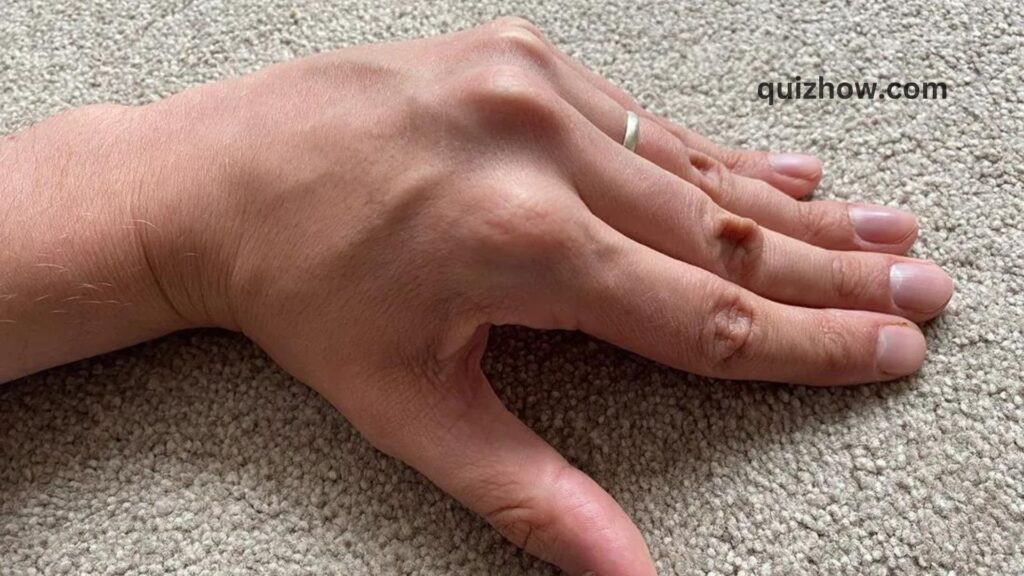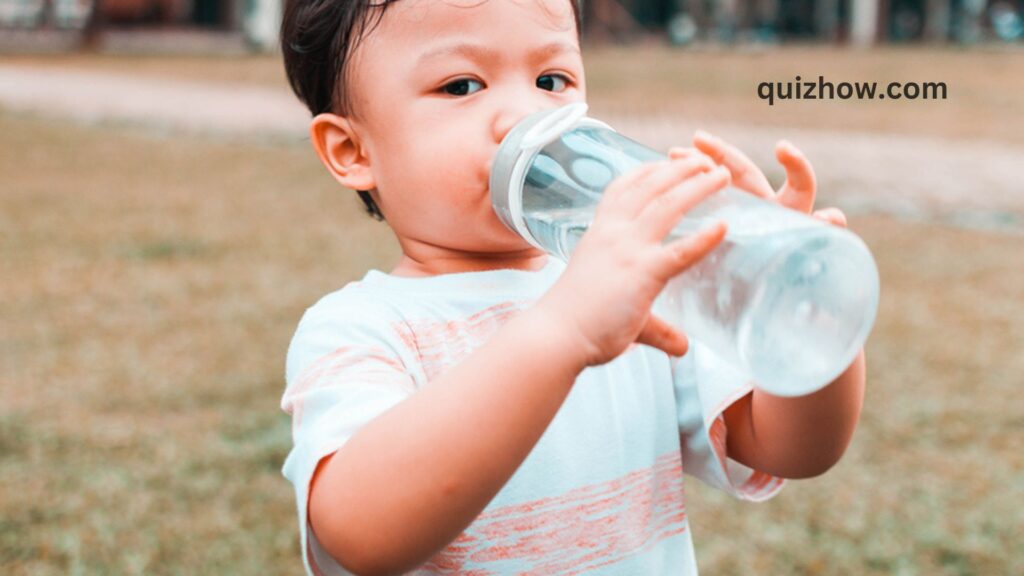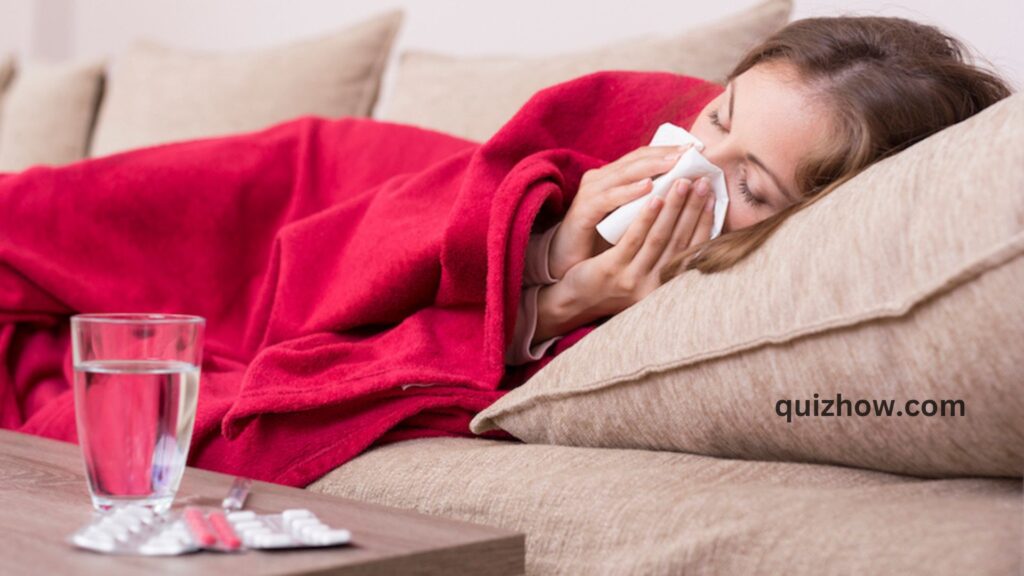Water is essential for life. Every part of our body, from cells to organs, relies on it to work properly. Despite its importance, many of us don’t pay enough attention to staying hydrated. Dehydration, which happens when you lose more fluids than you take in, can cause a range of health issues. Often, we only notice dehydration when we feel thirsty, but by then, our bodies are already craving water.
Recognizing dehydration isn’t just about thirst—it’s also about spotting the more subtle signs that you need to drink more fluids. Dehydration can sneak up on you, affecting both your physical and mental well-being in surprising and sometimes serious ways. This article will explore the signs of dehydration, help you figure out when your body needs more water, and provide tips on how to stay hydrated.
Early Signs of Dehydration
The first signs of dehydration are usually mild and easy to miss. Feeling thirsty or having a dry mouth is often the initial indicator that your body needs more fluids. If you’re constantly feeling thirsty, it’s a clear sign you’re not drinking enough water.

Another early warning sign is dark-colored urine. Ideally, your urine should be light yellow. Dark urine means your kidneys are trying to conserve water, a sign that you’re dehydrated. Feeling tired or sluggish is another early symptom. Without enough water, your body struggles to function, leading to fatigue. You might also notice dry skin that’s less elastic and looks dull.
Moderate Signs of Dehydration
If early signs are ignored, dehydration can become more serious. At this stage, symptoms are more noticeable and can affect your daily life. Dizziness and headaches are common, caused by reduced blood volume which affects oxygen and nutrients reaching your brain.
Muscle cramps can also occur due to dehydration. When you lose water, you also lose important electrolytes like sodium and potassium, which are crucial for muscle function. This can lead to painful cramps, especially during exercise.
Reduced urine output is another sign of moderate dehydration. Your body is conserving as much water as possible, leading to less frequent urination with minimal output and a strong odor. This indicates that your body is struggling to maintain its fluid balance.
Severe Signs of Dehydration
Severe dehydration is a medical emergency and can lead to serious complications if not treated immediately. One alarming sign is a rapid heartbeat, as your blood volume decreases and your heart has to work harder to pump blood.
Confusion and irritability can also occur in severe dehydration. When the brain doesn’t get enough water, cognitive functions can suffer, leading to confusion, irritability, or even hallucinations in extreme cases.
Fainting is another severe symptom, indicating that the body is about to collapse due to insufficient blood flow to the brain. Shock, a life-threatening condition, can result from severe dehydration and involves a dangerous drop in blood pressure that can lead to organ failure or death if not treated promptly.
Silent Symptoms of Dehydration
Not all signs of dehydration are obvious. Some can be mistaken for other issues or go unnoticed. For example, bad breath can be a sign of dehydration. Less saliva means more bacteria in the mouth, which can cause bad breath.
Dry skin is another subtle sign. While often linked to environmental factors or skin conditions, dehydration can also make your skin dry, flaky, and less elastic.
Craving sugar can be another surprising sign. When dehydrated, your body has trouble accessing energy stores, leading to cravings for sugary foods. This can be confusing since you might not feel thirsty, but your body still needs hydration.
Constipation is another symptom that might go unnoticed. Water helps with digestion and keeps stools soft. Without enough water, your body absorbs more water from the colon, leading to hard, dry stools that are difficult to pass.
How to Check for Dehydration
Worried about dehydration? There are a few easy ways to check if you’re getting enough fluids. One simple test is the skin turgor test. Gently pinch the skin on the back of your hand and then release it. If you’re well-hydrated, your skin will snap back quickly. If it stays pinched or takes a while to return to normal, you might be dehydrated.

Another handy way to check is by looking at the color of your urine. Light yellow or straw-colored urine means you’re hydrated, while dark urine suggests you need to drink more water.
Don’t forget to listen to your thirst. While thirst isn’t always the first sign of dehydration, it’s a good indicator that your body needs more water. If you’re often thirsty, especially with other signs like a dry mouth or feeling tired, it’s time to drink up.
The Dangers of Ignoring Dehydration
Ignoring dehydration can lead to some serious problems. Water is crucial for every organ in your body, and without enough of it, your organs have to work extra hard, which can cause long-term damage.
Your kidneys are especially at risk. They help filter waste from your blood and balance fluids. When you’re dehydrated, your kidneys work overtime to save water, which can lead to kidney stones or even kidney failure in severe cases.
Dehydration can also put a strain on your heart. As mentioned, dehydration can cause a rapid heartbeat and lower blood volume, which over time can increase your risk of heart disease.
Your mental health can suffer too. Even mild dehydration can affect your ability to concentrate, remember things, and manage your mood. Chronic dehydration can contribute to anxiety, depression, and other mental health issues.
Preventing Dehydration
The best way to avoid dehydration is to prevent it. Make sure to drink enough water throughout the day. A good rule of thumb is to aim for about 8 glasses (or 2 liters) of water daily, but this can vary based on your age, weight, and activity level.
Adding hydration-rich foods to your diet can also help. Fruits and veggies like cucumbers, watermelon, and oranges have a lot of water in them and can support your hydration needs.
Be aware of factors that can increase your water needs, such as hot weather, physical activity, and illness. During these times, drink more water and watch for signs of dehydration.
Special Considerations in Hot Weather
Hot weather makes dehydration more likely, especially in the summer. High temperatures cause you to sweat more, which can lead to fluid loss and dehydration if you don’t replenish it.
Along with drinking plenty of water, consider using sports drinks or electrolyte tablets if you’re active. These help replace lost sodium and potassium.
Staying cool is also important. Wear light clothing, stay in the shade when possible, and avoid intense activities during the hottest parts of the day. If you’re outside, take breaks to rest and hydrate.
Dehydration and Exercise
Exercise increases your risk of dehydration. As you sweat, you lose fluids, so it’s important to stay hydrated before, during, and after your workout.
Drink water or an electrolyte-rich beverage before you start exercising. During your workout, aim to drink about 7-10 ounces of water every 10-20 minutes. After exercising, rehydrate with water or a sports drink to replace lost fluids and electrolytes.
Athletes, in particular, should watch for dehydration signs. Even mild dehydration can affect performance, making you feel tired and decreasing your endurance. Keep an eye on urine color, your weight before and after exercise, and your energy levels to stay well-hydrated.
Hydration Myths and Facts
There are plenty of myths about hydration that can make it confusing to know how much water you need. For instance, the idea that everyone needs to drink 8 glasses of water a day is a good guideline, but individual needs can vary based on activity, climate, and health.
Another myth is that you only need to drink when you’re thirsty. Since thirst can be a late sign of dehydration, it’s best to drink water regularly throughout the day, even if you don’t feel thirsty.
Also, not all fluids hydrate equally. While water is the best choice for hydration, other drinks like coffee, tea, and sodas do contribute to your daily fluid intake. However, be cautious with caffeine, as it can have a diuretic effect, leading to fluid loss if consumed in large amounts. Balance these drinks with water to stay hydrated.
Dehydration in Children
Kids are especially prone to dehydration, especially when it’s hot or they’re sick. Because their bodies lose fluids faster, they need extra attention. Parents should keep an eye out for dehydration signs, which can be a bit different from those in adults.

For babies, watch for a dry mouth, no tears when crying, and fewer wet diapers than usual. Older kids might show dry lips, feel unusually tired, and have dark urine. It’s important to encourage them to drink water regularly, even if they don’t ask for it, and to offer fruits and vegetables that help with hydration.
To prevent dehydration, make drinking water a routine for your child, especially during playtime or in hot weather. If your child is sick, particularly with vomiting or diarrhea, watch their hydration closely and get medical help if you see any signs of dehydration.
Dehydration in the Elderly
Older adults are at higher risk for dehydration due to things like lessened thirst, medications affecting fluid balance, and age-related kidney changes. It can be tricky to spot dehydration in older people because symptoms like confusion and fatigue might be mistaken for other age-related issues.
Caregivers should regularly check on the hydration of elderly individuals, especially those who have trouble moving around or who may not remember to drink on their own. Offering water often, providing hydrating foods, and limiting alcohol and caffeine can help keep them hydrated.
Impact of Dehydration on Mental Health
Dehydration doesn’t just affect the body; it can also mess with your mind. Even mild dehydration can make it hard to concentrate, remember things, and make decisions. The brain is very sensitive to hydration changes, and without enough water, it struggles to work properly.
Dehydration can also lead to mood swings, irritability, and anxiety. The brain needs a steady supply of water to produce the chemicals that control mood. Without enough hydration, these processes can get disrupted, causing emotional ups and downs.
In severe cases, dehydration can cause confusion, delirium, and even hallucinations. Staying hydrated is crucial not just for your physical health but also for your mental well-being.
The Role of Electrolytes in Hydration
Electrolytes are important minerals like sodium, potassium, and magnesium that help keep your body’s fluid balance in check. They are vital for nerve and muscle function, hydration, blood pH, and other key processes. When you sweat, you lose both water and electrolytes, so it’s important to replace them to stay hydrated and healthy.
While water is usually enough for everyday hydration, you might need extra electrolytes during intense exercise, hot weather, or when you’re ill. Sports drinks, electrolyte tablets, and foods rich in electrolytes, like bananas, spinach, and yogurt, can help replenish these minerals.
Just be careful not to overdo it; both too few and too many electrolytes can cause health issues. Drinking water with added electrolytes or eating foods high in these minerals can help keep your levels balanced.
Dehydration During Illness
When you’re sick with things like vomiting, diarrhea, or a fever, you can lose fluids really quickly. This makes it easy to get dehydrated. It’s important to drink more fluids to replace what you’ve lost and stay hydrated.

Oral rehydration solutions (ORS) are great for this. They have a mix of water, electrolytes, and sugar, which helps you rehydrate effectively. If you’re taking care of someone who’s ill, like a child or an older adult, keep a close eye on their hydration.
If you notice severe signs of dehydration, like a rapid heartbeat, confusion, or fainting, get medical help right away. Dehydration can get serious quickly if not treated.
Also Read: Resilience: Navigating Life Challenges
Hydration in Cold Weather
Dehydration isn’t just a summer problem; it can happen in cold weather too. In winter, you might not feel thirsty even though your body needs water. Plus, breathing in cold air can cause you to lose more fluids.
To stay hydrated in the cold, drink water regularly, even if you’re not feeling thirsty. Warm drinks like herbal teas or soups can also help. Remember, staying hydrated in winter is just as important as in summer, so keep up with your water intake.
Caffeine and Dehydration
Caffeine is a diuretic, which means it can make you urinate more and potentially lead to dehydration if you drink too much. But moderate amounts of caffeine, like from coffee or tea, usually won’t cause major dehydration. The key is to balance your caffeine intake with plenty of water.
There’s a myth that caffeinated drinks don’t count towards your daily fluid intake. While they do have a diuretic effect, they still help with your overall hydration. Just be mindful of your caffeine consumption and make sure to drink enough water.
Dehydration and Diet
What you eat can affect your hydration. Foods high in salt, sugar, or alcohol can cause dehydration by making you urinate more or pulling water out of your cells. If your diet has a lot of these, drink extra water to counteract their effects.
On the flip side, fruits and veggies with high water content, like watermelon, cucumbers, and oranges, can help keep you hydrated. Adding these to your diet is a tasty way to boost your fluid intake.
When to Seek Medical Help
Mild dehydration can often be managed at home by drinking more fluids. But if you or someone else has severe symptoms like a rapid heartbeat, confusion, fainting, or signs of shock, you need to get medical help immediately.
Sometimes, severe dehydration requires intravenous (IV) fluids to quickly restore hydration and balance electrolytes. It’s always better to be safe, so don’t hesitate to seek medical advice if you’re unsure.
The Role of Technology in Monitoring Hydration
Nowadays, technology can help you stay hydrated. There are apps that remind you to drink water, track your fluid intake, and even calculate how much water you need based on your activity level and environment.
Wearable devices like smartwatches and fitness trackers often have features to monitor hydration and remind you to drink. Some even measure your sweat rate and suggest how much water you need.
Smart water bottles are another cool tool. They track your water intake and remind you to drink throughout the day, often syncing with apps to help you meet your hydration goals.

Hydration for Athletes
Athletes have special hydration needs because of their intense physical activity. Staying hydrated helps with performance, prevents injuries, and supports recovery. The amount of water you need depends on the type, length, and intensity of exercise.
Sports drinks can be useful during long or intense workouts because they replace fluids and electrolytes lost through sweat. But not all sports drinks are the same, so choose one that fits your needs.
Athletes should also focus on hydration before and after exercise. Drinking water before working out ensures you’re well-hydrated, while post-exercise hydration helps replace lost fluids and electrolytes. Keep an eye on urine color, body weight, and overall energy to tweak your hydration strategy.
Myths About Hydration
There are a lot of myths about hydration that can be confusing. One common myth is that drinking a lot of water will “flush out” toxins. While water helps your kidneys work and removes waste, drinking too much won’t necessarily detoxify your body.
Another myth is that drinking water with meals dilutes digestive juices. In reality, water helps break down food and can aid digestion. It’s fine to drink water with your meals, just don’t overdo it.
Overhydration is another issue often misunderstood. Drinking too much water can lead to a condition called hyponatremia, where sodium levels in your blood drop dangerously low. Balance your water intake with your body’s needs, especially during intense exercise.
Hydration on the Go
In today’s busy world, it’s important to stay hydrated even when you’re on the move. Whether you’re traveling, working long hours, or just out and about, having a hydration plan that fits your lifestyle can make a big difference. Portable water bottles, hydration packs, and electrolyte tablets are great tools to help you stay hydrated wherever you are.

Traveling, especially by plane, can be tough on your hydration. The low humidity in airplane cabins can lead to dehydration. To avoid this, drink plenty of water before and during your flight, and try to limit alcohol and caffeine, which can make dehydration worse.
If you’re always on the go, carrying a reusable water bottle can be a game-changer. Many are designed to be lightweight and easy to carry, so you can sip water throughout the day. Some even have built-in filters, so you can fill them up from any water source.
Dehydration in Pets
Pets can get dehydrated just like people, especially in hot weather or when they’re sick. Dogs and cats need water to stay cool, digest food, and remove waste. It’s important to spot the signs of dehydration and take steps to keep your pets hydrated.
You might notice dehydration in pets through dry gums, sunken eyes, or lack of energy. A quick check is to gently lift the skin on the back of their neck—if it doesn’t snap back quickly, they might be dehydrated. Make sure your pets always have access to fresh water and place water bowls in different spots around your home to encourage them to drink.
If your pet shows signs of dehydration, especially with other symptoms like vomiting or diarrhea, get them to a vet quickly. Dehydration can become serious fast and lead to complications like kidney failure if not treated promptly.
Creating a Personal Hydration Plan
To stay well-hydrated, it helps to have a personal hydration plan that fits your lifestyle and needs. Consider factors like how active you are, the climate you’re in, your diet, and any health issues that might affect your hydration.
Start by figuring out how much water you should aim for each day. A good rule of thumb is to drink at least half your body weight in ounces of water daily. For instance, if you weigh 150 pounds, you should aim for 75 ounces of water. Adjust this based on your activity level, weather, and how much water-rich food you eat.
Keep track of your hydration by using a journal, app, or hydration tracker. Record how much water you drink, how often you feel thirsty, and any dehydration symptoms you notice. This way, you can tweak your plan as needed to make sure you’re staying properly hydrated.

Discover more from QuizHow
Subscribe to get the latest posts sent to your email.

